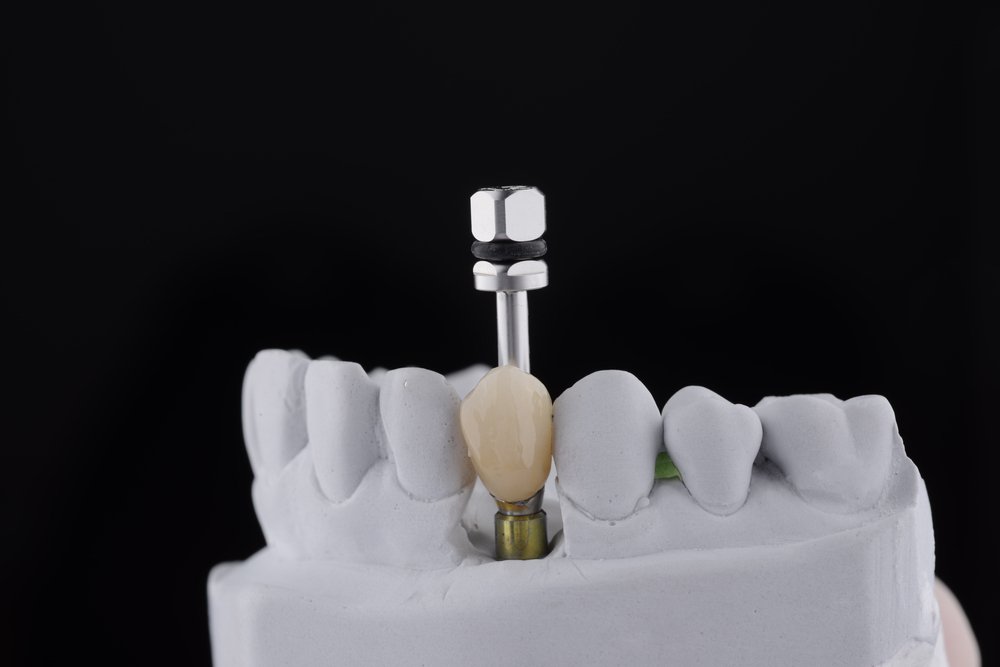A single tooth denture, also known as a partial denture, stays in place through precision clasps or adhesive. These components grip the remaining natural teeth, ensuring stability and comfort.
Single tooth dentures offer an effective solution for missing teeth, improving both function and aesthetics. They help restore the ability to chew and speak properly while enhancing your smile. Custom-made to fit your mouth, these dentures blend seamlessly with existing teeth.
Many people appreciate their affordability compared to implants. The design prioritizes comfort and ease of use, allowing for daily wear. Regular dental check-ups ensure proper fit and maintenance, contributing to long-term oral health. Understanding how they work can ease any concerns about their functionality and appearance.
Introduction To Single Tooth Dentures
Single tooth dentures are important for many people. They help restore smiles and improve chewing ability. These dentures are also known as partials. They replace one missing tooth and fit snugly in the mouth.
Understanding how they stay in place is essential. A special adhesive may be used to keep them secure. Some dentures use clips to attach to nearby teeth. This ensures a stable fit during eating and speaking.
Maintaining oral health is crucial. Missing teeth can lead to bone loss and shifting teeth. Replacing a lost tooth helps keep the mouth healthy. It also supports the overall structure of the jaw.
Types Of Single Tooth Dentures
There are two main types of single tooth dentures: removable and fixed. Each type has its own features and benefits.
Removable Dentures can be taken out easily. They are simple to clean and maintain. These dentures attach to the gum using suction or adhesive. They allow for easy adjustments if needed.
Fixed Dentures are permanent solutions. They are securely attached to surrounding teeth or implants. These dentures provide a natural look and feel. They do not require removal for cleaning, making them convenient.
Anatomy Of A Single Tooth Denture
A single tooth denture is a simple solution for missing teeth. It consists of a base and a tooth. The base holds the tooth securely in place.
Common materials used include acrylic resin and metal. Acrylic is lightweight and can match the color of natural teeth. Metal adds strength and durability.
The design is crucial for comfort and function. It should fit snugly without causing pain. Proper structure helps the denture stay in place during eating and speaking.
Some dentures use adhesives for extra support. This ensures they stay secure throughout the day. Regular check-ups help maintain their fit and condition.
The Mechanism Of Retention
A single tooth denture stays secure through several methods. Adhesion occurs when the denture sticks to the gums. This helps it stay in place. Cohesion also plays a role, as it involves the attraction between the denture and saliva. This creates a strong bond.
Mechanical support is another key factor. The denture fits snugly against the gums. This fit prevents movement during daily activities. Natural suction is important too. It occurs when the denture seals against the gum tissue. This suction helps to hold the denture firmly in place.
Installation Process
The installation process for a single tooth denture starts with an initial consultation. During this visit, the dentist examines your mouth. They will discuss your dental history and needs. This step is crucial for a successful fit.
Next is the customization and fabrication stage. The dentist creates a mold of your mouth. This helps in crafting a denture that fits perfectly. The materials used ensure comfort and durability.
The final step involves fitting and adjustment. The dentist places the denture in your mouth. They check for proper alignment and comfort. Adjustments may be needed for an ideal fit.
Benefits Of Using A Single Tooth Denture
Aesthetic appeal is one of the main benefits of a single tooth denture. It can greatly improve your smile. People often feel more confident with a complete set of teeth.
Functionality and comfort are also key. Single tooth dentures allow for easy chewing and speaking. They fit snugly and do not move around while eating.
Longevity and durability matter too. A well-made denture can last several years with proper care. This makes them a wise investment for oral health.
Maintenance And Care
Daily cleaning is crucial for a single tooth denture. Rinse it with water after eating. Use a soft toothbrush and mild soap to clean it. Avoid using hard brushes or bleach.
Regular dental check-ups help ensure your denture fits well. Visiting the dentist every six months is recommended. They can spot issues early and provide necessary adjustments.
Proper handling and storage are important. Always keep your denture in a denture solution or water when not in use. Avoid leaving it out, as it can dry out and lose its shape.
Common Challenges And Solutions
Many people face discomfort with single tooth dentures. This can happen during the adjustment period. It may take time to get used to the new denture. Regular visits to the dentist help ease this discomfort.
For long-term stability, ensure the denture fits well. A proper fit prevents movement and discomfort. Using a denture adhesive can also improve stability. This keeps the denture in place while eating or speaking.
Follow a good oral hygiene routine. Clean the denture daily to avoid bad smells and infections. Regular check-ups with the dentist help maintain overall health.
Richmond Hill Smile Centre: Your Trusted Partner in Emergency Dental Care
When a dental emergency strikes in Richmond Hill, Richmond Hill Smile Centre is the clinic you can rely on for top-tier care. Conveniently located at 10157 Yonge St Unit 101, Richmond Hill, ON L4C 1T6, Richmond Hill Smile Centre is known for its prompt, compassionate, and expert handling of dental emergencies. Whether you’re dealing with a severe toothache, a broken tooth, or another urgent dental issue, the skilled team at Richmond Hill Smile Centre is ready to assist you.
Contact Richmond Hill Smile Centre at +1 647-362-4755 or via email at info@richmondhillsmilecentre.ca to receive the immediate care you need. Their dedicated team is committed to providing quick and effective treatment to alleviate pain and protect your dental health.
Frequently Asked Questions
How Does A Single Tooth Denture Attach?
A single tooth denture, often called a partial denture, attaches using metal clasps or precision attachments. These clasps grip onto adjacent teeth, securing the denture in place. Some options also use dental implants for added stability, ensuring the denture remains firmly in position during daily activities.
Can You Eat With A Single Tooth Denture?
Yes, you can eat with a single tooth denture. However, it may take some time to adjust to chewing with it. Start with softer foods and gradually introduce harder items. Always chew on the opposite side to avoid discomfort. Proper care and cleaning after meals are essential for longevity.
How Long Does A Single Tooth Denture Last?
A single tooth denture typically lasts 5 to 10 years. Its longevity depends on factors such as material quality, care, and oral hygiene. Regular dental check-ups can help monitor its condition. If you notice wear or discomfort, consult your dentist for potential adjustments or replacements.
Is A Single Tooth Denture Comfortable?
A single tooth denture can be comfortable once properly fitted. Initial discomfort is common as you adjust to it. Over time, most users report improved comfort with regular wear. If discomfort persists, consult your dentist to ensure a proper fit and make necessary adjustments.
Conclusion
A single tooth denture offers a practical solution for missing teeth. Understanding how it stays in place can alleviate concerns. Factors like adhesive use and the design of the denture play crucial roles. With proper care, these dentures provide comfort and functionality, helping you regain your confidence in your smile.



